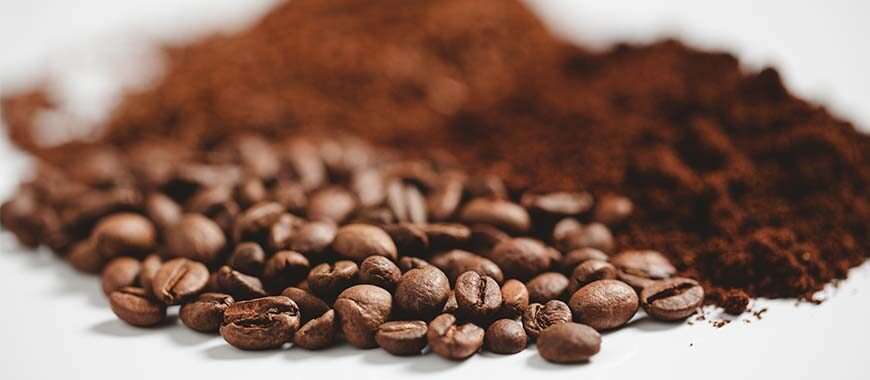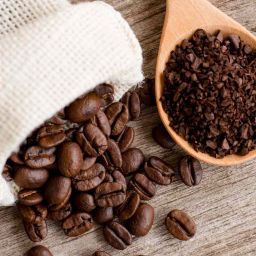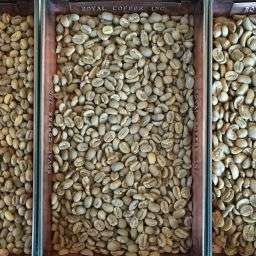
Decaf coffee beans have surged in popularity among coffee enthusiasts seeking the rich taste of coffee without the stimulating effects of caffeine. This shift reflects a growing desire for a coffee experience that aligns with various lifestyle and health considerations, offering the same complex flavors and aroma of regular coffee without the caffeine-induced energy boost.
Understanding Decaf Coffee Beans
The Decaffeination Process
Decaffeination is the process through which caffeine is removed from coffee beans, and it’s crucial for preserving the beans’ inherent flavors while eliminating caffeine. Among the several methods employed, the Swiss Water Process stands out for being completely chemical-free. This method relies on solubility and osmosis to decaffeinate coffee beans, ensuring a 99.9% caffeine-free product that retains its original taste and aroma.
The Swiss Water Process is celebrated for its environmental friendliness and its ability to maintain the coffee’s natural flavor profile, making it a preferred choice among health-conscious consumers and those sensitive to chemicals commonly used in other decaffeination methods.
Types of Decaf Coffee Beans
When it comes to decaf coffee beans, the two primary types are Arabica and Robusta, each with its distinct flavor profile. Arabica beans are known for their smooth, complex flavor profiles, often with hints of fruit and sugar, and they tend to have a higher acidity compared to Robusta. On the other hand, Robusta beans offer a stronger, more bitter taste, with a grain-like overtone and nutty aftertaste.
Robusta beans also typically contain a higher caffeine content, though this is removed in the decaffeination process for those who prefer Robusta’s robust flavor without the caffeine. The choice between Arabica and Robusta decaf beans ultimately comes down to personal taste preferences and the desired flavor complexity in the decaf coffee.
Top Picks for Best Decaf Coffee Beans
Criteria for Selection
Selecting the best decaf coffee beans involves considering several key factors to ensure that the coffee not only meets the decaffeinated requirement but also delivers on taste, quality, and overall drinking experience. The primary criteria for selection include:
- Flavor: The taste profile of the coffee is paramount, as the decaffeination process should not compromise the bean’s inherent flavors. Beans should offer a richness and depth comparable to their caffeinated counterparts.
- Process: The method used for decaffeinating coffee beans significantly affects their taste and health attributes. Processes like the Swiss Water Process are preferred for their ability to remove caffeine without chemical solvents, preserving the bean’s natural flavors.
- Freshness: The freshness of coffee beans impacts their aroma and flavor. Beans should be roasted and packaged to ensure they retain their quality from the producer to the consumer.
- Brand Reputation: The reputation of the brand reflects their commitment to quality, ethical sourcing, and environmental practices, influencing the overall product quality.
Review of Top Decaf Coffee Beans
Kicking Horse Coffee Decaf
- Key Features: Utilizes the Swiss Water Process for decaffeination, ensuring a chemical-free result. Known for its low acidity and environmentally friendly practices.
- Pros: Offers a rich and bold flavor suitable for various brew methods. The coffee is shade-grown and climate pledge-friendly, with easy-to-store packaging.
- Cons: Higher price point and lack of roast date on the packaging.
- Overview: Kicking Horse Coffee Decaf stands out for its commitment to quality and environmental sustainability, making it an excellent choice for those seeking premium decaf coffee with a conscience.
Fresh Roasted Coffee’s Swiss Water Decaf Colombian
- Key Features: Decaffeinated using the Swiss Water Process, this coffee boasts light to medium roast profiles with hints of walnut and honey.
- Pros: Sustainably sourced with environmentally friendly roasting methods. The beans offer a full-bodied taste without the acidic bite, packaged for freshness.
- Cons: Some may find the flavors too light; the price can be considered high for some budgets.
- Overview: This offering from Fresh Roasted Coffee appeals to those who appreciate subtle flavor nuances and a commitment to sustainability. The Swiss Water Process ensures a clean, chemical-free cup of coffee.
San Francisco Bay Coffee Decaf Gourmet Blend
- Key Features: Offers a reliable and value-oriented option with a nutty flavor profile.
- Pros: Good value for money, offering a consistent and reliable coffee experience.
- Cons: Some might find the coffee lacks strength and complexity.
- Overview: While it may not impress those seeking bold flavors, San Francisco Bay Coffee provides a solid, if somewhat unexciting, decaf option that’s great for serving to a wide range of preferences.
Starbucks Decaf Café Verona
- Key Features: A classic flavor from a well-known brand, decaffeinated using a solvent process.
- Pros: Consistency in flavor, backed by the Starbucks brand reputation.
- Cons: Freshness may vary due to the scale of production and warehousing.
- Overview: Starbucks offers a reliable choice for fans of the brand, though the solvent-based decaffeination process and potential freshness issues may deter some.
Peet’s Coffee Decaf House Blend
- Key Features: Noted for its deep roast and rich flavor, using a carbon dioxide decaffeination process.
- Pros: Offers a robust flavor profile suitable for those who enjoy a stronger decaf coffee.
- Cons: Some may find the coffee too intense or miss the nuanced flavors found in lighter roasts.
- Overview: Peet’s Coffee provides an excellent option for those seeking a hearty, bold decaf coffee, with the added benefit of a more environmentally friendly decaffeination proces.
Each of these decaf coffee beans offers a unique set of features, pros, and cons, catering to a range of preferences and priorities. Whether you prioritize environmental practices, flavor profile, or brand reputation, there’s a decaf coffee bean on this list that’s sure to meet your needs.
Buying Guide for Decaf Coffee Beans
How to Choose the Best Decaf Coffee Beans
Selecting the best decaf coffee beans is vital for enjoying a rich coffee experience without the caffeine. Look for beans decaffeinated using the Swiss Water Process, which is a chemical-free method ensuring the coffee’s flavor integrity remains intact. Additionally, opting for organic certifications can assure you of the coffee’s quality and the absence of harmful pesticides.
The origin of the beans also plays a crucial role in flavor, so consider trying beans from different regions to find your preference.
Preparing and Enjoying Decaf Coffee
Brewing the Perfect Cup
The brewing method can significantly affect the taste of decaf coffee. For a full-bodied flavor, a French press or espresso machine works well, extracting deep flavors from the beans. For those who prefer a lighter taste, drip or pour-over methods can highlight the subtle nuances of the coffee.
Regardless of the method, using fresh, cold water and properly storing your beans to maintain freshness can enhance your coffee experience.
Health Benefits and Considerations
Decaf coffee offers several health benefits, including a lower risk of certain diseases and reduced caffeine intake, which can alleviate anxiety and improve sleep quality. It retains most antioxidants found in regular coffee, contributing to overall health by reducing inflammation and combating oxidative stress.
However, those with specific health conditions should consult a healthcare provider before making decaf a regular part of their diet.
FAQs
- How is decaf coffee made? Decaf coffee is made by removing caffeine from coffee beans using methods like the Swiss Water Process or CO2 process, which aim to preserve the bean’s flavor.
- How to store decaf coffee beans for freshness? Store decaf coffee beans in an airtight container away from direct sunlight and moisture to maintain their freshness.
- How to choose a decaf coffee that is not bitter? Opt for beans decaffeinated using the Swiss Water Process and choose Arabica beans for a smoother, less bitter taste. Experiment with roast levels and origins to find your preferred flavor profile.
Conclusion
Choosing the right decaf coffee beans is essential for those looking to enjoy coffee without the caffeine. By considering factors like the decaffeination process, bean origin, and organic certifications, coffee lovers can find high-quality decaf coffee that doesn’t compromise on taste.
Preparing decaf coffee with the appropriate brewing method can further enhance your coffee experience, making it a satisfying part of your routine. With its health benefits and the variety of flavors available, decaf coffee is a delightful choice for any coffee enthusiast.









